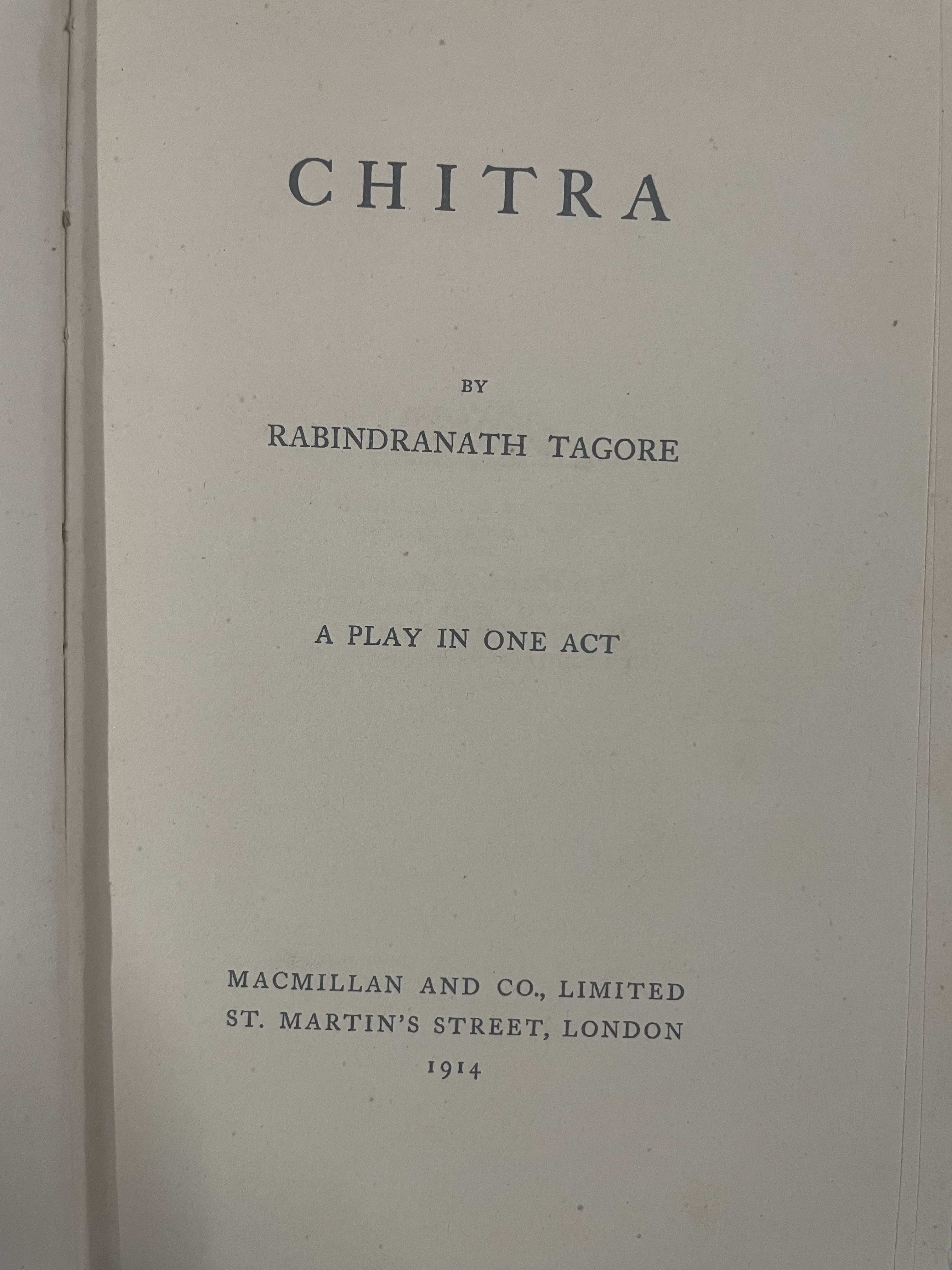Chitra

About
Summary
Exquisite
TOC
Details
Related
URL
Images
Overview
Chitra, a one-act play penned by Rabindranath Tagore, delves into themes of self-actualization, identity, love, and gender equality through the story of a female warrior who seeks to win the love of Arjuna. The play revolves around Chitrangada, often called Chitra, the daughter of the King of Manipur, Chitravahana. With no male heir, the king raises Chitra as a son, training her in warfare and statecraft. However, when Arjuna, a celebrated warrior, comes to Manipur, Chitra falls in love with him but feels inadequate in her warrior persona. To win his affection, she seeks the help of Madana, the God of Love, and Vasanta, the God of Youth and Beauty. They grant her a boon of perfect beauty for one year. Although Arjuna is captivated by her transformed appearance, Chitra realizes that his love is not for her true self, leading her to a journey of self-discovery and acceptance.
Importance of Book
Exploration of Identity: Chitra is significant for its exploration of identity, particularly female identity, and the challenges women face in a patriarchal society.
Critique of Societal Norms: The play critiques societal norms and expectations regarding beauty, gender roles, and the definition of love.
Themes of Self-Acceptance and Empowerment: Chitra promotes self-acceptance and empowerment, encouraging individuals to embrace their true selves and challenge conventional standards.
Literary Merit: Tagore's writing is poetic and thought-provoking, making Chitra a valuable piece of literature. The play's concise structure and powerful dialogues enhance its impact.
Key Themes
Identity and Self-discovery: Chitra's journey is a quest for her true identity, as she struggles to reconcile her warrior self with her desire for love and acceptance.
Love: The play explores the complexities of love, contrasting physical attraction with spiritual connection and highlighting the importance of genuine acceptance.
Gender Equality: Tagore challenges traditional gender roles, portraying Chitra as a strong, capable woman who defies societal expectations.
Beauty: Chitra questions conventional notions of beauty, suggesting that true beauty lies in inner strength and character rather than physical appearance.
Truth vs. Deception: Chitra has to deal with the conflict between truth and deception as her relationship deepens with Arjuna.
Cultural Significance
Feminist Interpretations: Chitra has been interpreted as a feminist text that challenges patriarchal norms and celebrates female empowerment.
Influence on Indian Literature and Theater: The play has had a lasting influence on Indian literature and theater, inspiring other writers and playwrights to explore similar themes.
Adaptations and Performances: Chitra has been adapted and performed numerous times, both in India and abroad, contributing to its cultural significance.
Tagore's Legacy: The play reflects Tagore's broader philosophical and artistic vision, which emphasizes humanism, spiritualism, and social reform.
Relevance to Contemporary Society: The themes explored in Chitra remain relevant to contemporary society, where issues of identity, gender equality, and self-acceptance continue to be debated.
Effects on Society
Promotion of Progressive Ideals: Chitra has contributed to the promotion of progressive ideals, challenging traditional views on gender and identity.
Encouragement of Self-reflection: The play encourages audiences to reflect on their own identities and values, promoting self-awareness and personal growth.
Empowerment of Women: Chitra has empowered women by presenting a strong female character who defies societal expectations and asserts her autonomy.
Stimulation of Social Dialogue: The play has stimulated social dialogue on issues of gender equality, beauty standards, and the importance of inner qualities.
Artistic Inspiration: Chitra has inspired artists and writers to create works that explore similar themes, contributing to the richness and diversity of Indian culture.
Conclusion
Chitra by Rabindranath Tagore is a significant literary work that explores complex themes of identity, love, and gender equality. Through the journey of Chitrangada, the play critiques societal norms, promotes self-acceptance, and celebrates the power of inner strength. Its cultural significance lies in its feminist interpretations, influence on Indian literature and theater, and its enduring relevance to contemporary society. Chitra continues to inspire audiences to reflect on their own identities and values, making it a timeless and impactful work of art.
Title
Chitra
Author
Rabindranath Tagore
Name of Publisher
Macmillan and Co limited St Martin?s Street London
Publish Date
1914
Subject
Traditional Indian storytelling with modern psychological insight.
Vintage
1901-1947
Edition
First
Category
Literary
Sub Category
Tagore
Rarity
RARE
